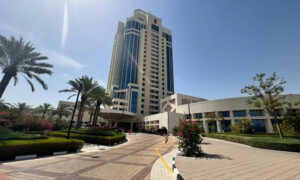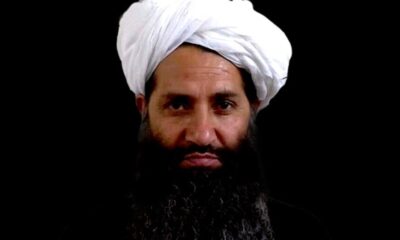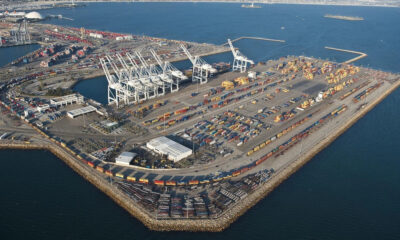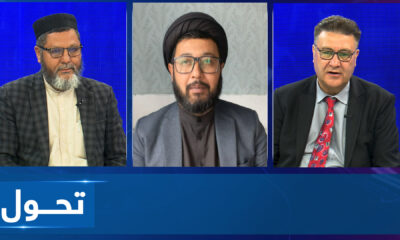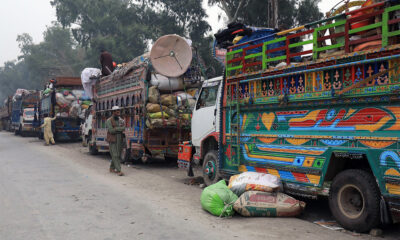Latest News
IEA calls on Doha meeting delegates to help resolve Afghanistan’s challenges
Mujahid told delegates that the IEA is endeavoring to achieve economic independence by laying the foundations of a self-sustaining and secure national economy.
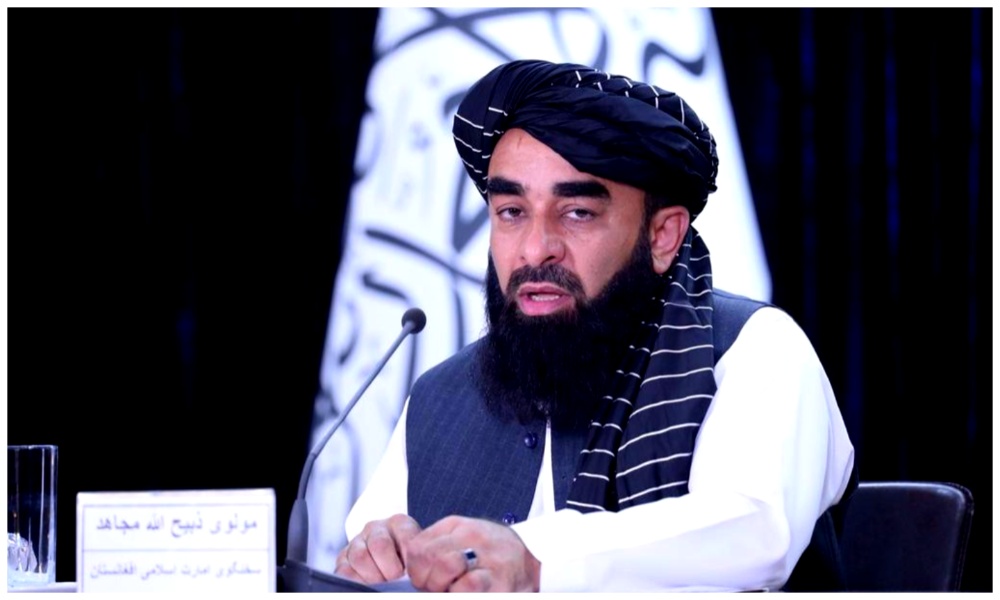
Heading Afghanistan’s delegation to Doha, Zabihullah Mujahid on Sunday called for working groups to be established to resolve three critical issues – the removal of all restrictions and sanctions; the unfreezing of all Afghanistan’s foreign reserves; and finding alternative livelihoods for former poppy farmers.
In his speech to delegates attending the UN-led Doha meeting on Afghanistan, Mujahid said: “We perceive the current Doha meeting as a crucial opportunity to engage in constructive dialogue regarding the unilateral and multilateral sanctions imposed on some officials and our financial and banking sectors, as well as the broader challenges confronting our national economy.”
He said the Doha forum represents a positive step towards addressing Afghanistan’s key challenges but noted that questions were being asked at home as to why no easing of sanctions had been made on the financial and trade sectors.
Mujahid stated that Afghans, who have suffered through almost 50 years of conflict, foreign invasions and interference by other countries had now gained independence, ended the war and built a system aimed at “fostering positive engagement with the world, however, in return they faced sanctions and restrictions?
“Is it fair and appropriate?” Mujahid asked.
He said he knows some countries disagree with the Islamic Emirate’s policies but that it was the duty of experienced diplomats to find ways to interact and understand each other.
“The policy differences should not escalate to the extent that powerful countries use their leverage to impose security, political, and economic pressures on our people, affecting the lives of our nation in a significant way,” he said.
He raised the issue of poppy cultivation and said despite sanctions and outside pressure, the IEA had banned the cultivation, processing and smuggling of poppy.
“Poppy cultivation, which remained as a significant challenge in Afghanistan, we reduced it to almost zero; however, in contrast, instead of recognizing and commending these initiatives, lifting banking restrictions to stimulate the country’s economy and unfreezing national reserves, some countries have continued with their policy of non-cooperation,” he said.
Mujahid told delegates that the IEA is endeavoring to achieve economic independence by laying the foundations of a self-sustaining and secure national economy.
“We are committed to advancing real economic development in Afghanistan, taking initial steps towards creating jobs, establishing factories, lifting people out of poverty, and creating business opportunities for women,” he said.
Acknowledging the countries that provide humanitarian aid, Mujahid implied this was not a solution but that in order to end the humanitarian crisis, the international community needed to remove sanctions, provide development aid and allow the government and people of Afghanistan to utilize their capacities without restrictions for the revival of the national economy.
He spoke on the progress the IEA has made with its neighboring countries in terms of connectivity and mentioned the railway project linking Uzbekistan to Afghanistan and Pakistan. He also touched on the Turkmenistan-Afghanistan-Pakistan-India (TAPI) gas pipeline project.
“In collaboration with Turkmenistan, we have made significant progress regarding the implementation of the ambitious gas pipeline project (TAPI) over the past two years. This milestone ensures positive participation in energy exchange and connectivity between Central and South Asia through Afghanistan,” he said.
He pointed out that a secure Afghanistan benefits the entire region and that ties already forged with regional countries demonstrates the IEA’s commitment to establishing and maintaining good relations.
In light of this, other nations, especially Western countries, can remove obstacles hindering the development of relations with the IEA, he said, emphasizing that differences of opinion “are natural”.
“Like the regional countries, they can take genuine and practical steps toward positive engagement,” Mujahid said.
“The Islamic Emirate of Afghanistan is keen on engaging constructively with Western nations as well. Like any sovereign state, we uphold certain religious and cultural values and public aspirations that must be acknowledged to facilitate progressive bilateral relations rather than encountering disputes and stagnation.
“Our aspiration is for the national sovereignty, independence, values, and preferences of the Islamic Emirate of Afghanistan to be duly respected, as affirmed by the United Nations Charter,” Mujahid said.
He also outlined progress made on a diplomatic note and said: “Just as the regional countries have positively interacted with the current government of Afghanistan as a responsible system, we hope that Western countries will also prioritize mutual bilateral interests in a similar manner.”
Mujahid however slammed “countries and organizations that profess to uphold human rights”. This was in relation to the “ongoing genocide in Gaza, Palestine.”
Without naming countries or organizations, he said: “It is important to note that certain entities directly involved in this humanitarian atrocity lack the moral standing to lecture us on human rights.
In conclusion, he reiterated that in order to ensure the Doha meeting is productive and meaningful, two areas need to be focused on. First was the removal of all restrictions and sanctions and second was the unfreezing of all Afghanistan’s foreign reserves.
“The continued freezing of these reserves has severely impaired the ability of commercial banks to meet the currency needs of their clients, both domestically and internationally,” he said adding that it was also crucial that interactions between
Afghanistan banks and foreign banks resume.
Mujahid’s third point was that alternative livelihoods were needed for Afghan farmers who previously cultivated poppies.
“This is a shared responsibility that must be addressed collectively, and Afghanistan should not be left to manage this challenge alone.
“I propose the formation of working groups to address these issues and look forward to having effective and productive discussions with respected representatives on these matters.”
The UN is hosting its 3rd meeting on Afghanistan. The meeting got underway on Sunday, June 30 and will wrap up on Monday, July 1 in Doha, Qatar.
Representatives from more than 25 countries and international organizations are taking part in the meeting.
RELATED STORIES
Third Doha meeting on Afghanistan gets underway in Qatar
Back from UAE, IEA officials say numerous countries keen to expand ties
Latest News
Islamic Emirate faces a wave of negative propaganda: Supreme leader
In his speech, Akhundzada emphasized on avoiding division and disunity, stating that the survival of the system lies in unity and solidarity.
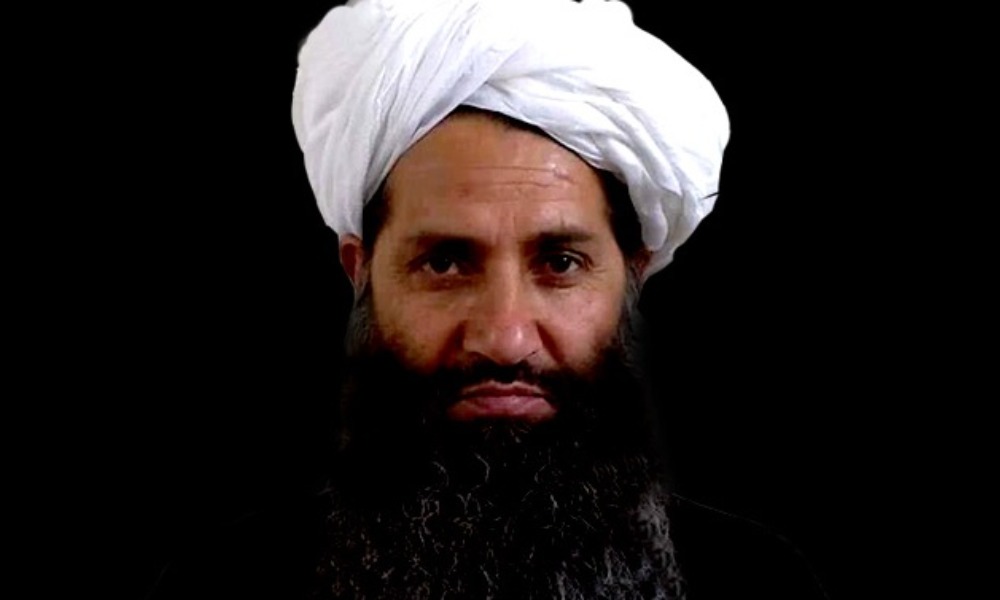
Mawlawi Hibatullah Akhundzada, supreme leader of the Islamic Emirate of Afghanistan (IEA), led Eid-ul-Fitr prayer in Kandahar province on Sunday, attended by thousands of people.
In his speech, Akhundzada emphasized on avoiding division and disunity, stating that the survival of the system lies in unity and solidarity.
He added that the Islamic Emirate is facing a wave of negative propaganda, and its enemies are using these tactics to incite war and conflict in the country once again.
He warned that division would lead to the failure of Muslims and the collapse of systems.
The leader of the Islamic Emirate further mentioned that they sacrificed their lives for 20 years to achieve victory in jihad, and protecting this system requires even more sacrifices.
He called on the people, the forces of the Islamic Emirate, and officials to obey the leadership’s orders, emphasizing that the absence of leadership in the past led to civil wars, which must not be repeated.
Latest News
Pakistan finalizes plans to detain and deport Afghans as deadline nears
Pakistan has granted Afghan migrants, both undocumented and those holding ACC cards, a deadline of March 31 to voluntarily leave the country.
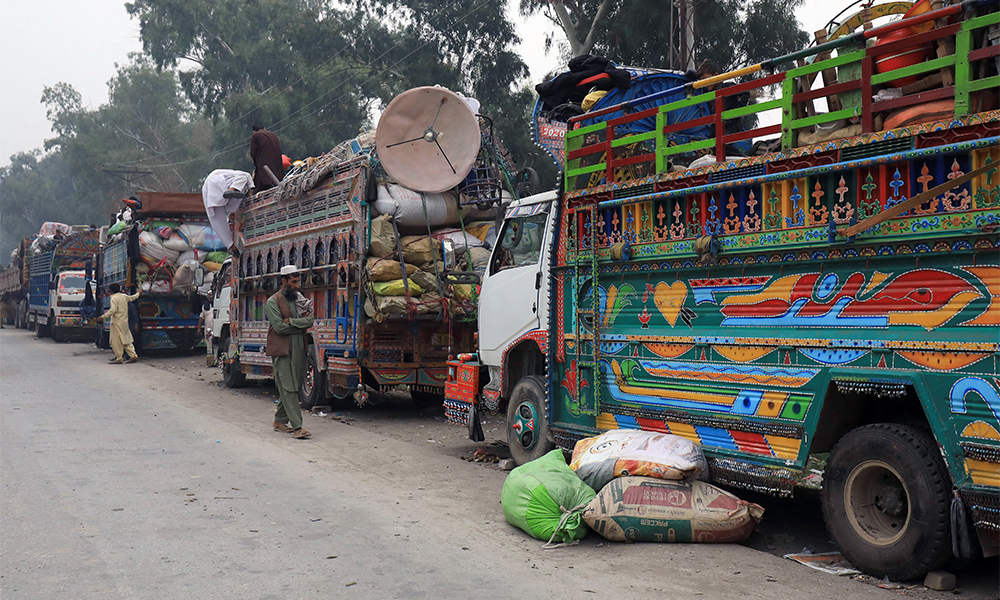
Officials in Pakistan have completed arrangements to detain and expel Afghan citizens following the March 31 deadline for their voluntary return to Afghanistan. This move is part of the country’s plan to address the growing concerns regarding the status of Afghan migrants in Pakistan.
A high-level meeting on Friday, chaired by Interior Minister Mohsin Naqvi, reviewed the measures to repatriate Afghan Citizen Card (ACC) holders. This meeting focused on ensuring the effective execution of the government’s deadline and the logistics surrounding the return process.
Despite requests from the Afghan government and human rights organizations, Pakistani authorities have firmly rejected extending the deadline for the return of ACC holders. The Pakistani government had initially set the deadline for the end of March, and the expulsion process will move forward as planned.
Mohsin Naqvi also revealed that Talal Chaudhry, the State Minister for Interior, would travel to the provinces to assess and address any challenges and potential issues in the process of Afghan migrants’ return.
Meanwhile, Pakistani security forces have detained at least 932 Afghan migrants in Rawalpindi, as the deadline for the expulsion of Afghan migrants with ACC cards approaches.
Human rights organizations have strongly condemned Pakistan’s recent decision to expel Afghan refugees, labeling it a violation of international law and a potential humanitarian crisis. They argue that many of these refugees, including human rights defenders, political activists, and victims of gender-based violence, fled Afghanistan to escape persecution and are now at risk of facing harm if deported.
The Human Rights Commission of Pakistan (HRCP) has expressed deep concern over the government’s ultimatum for undocumented immigrants to leave by March 31, warning that this could lead to a humanitarian disaster. They highlight that such forced repatriation violates international customary law and could adversely affect vulnerable groups, including women, children, the elderly, and individuals with disabilities.
Amnesty International has called on Pakistan to halt the detentions, deportations, and harassment of Afghan refugees, emphasizing that these actions violate the principle of non-refoulement, which prohibits returning individuals to places where they face risks of persecution. They stress that deporting Afghan refugees, especially women and girls, could deny them access to safety, education, and livelihoods.
Pakistan has granted Afghan migrants, both undocumented and those holding ACC cards, a deadline of March 31 to voluntarily leave the country.
However, Pakistani officials confirmed that Afghan migrants holding “PoR” cards are not at risk of being expelled until June 30.
Meanwhile, the International Organization for Migration (IOM) reported a sharp decline in Afghan returns and deportations during the first half of March. Between March 1 and 15, returns dropped by 67 per cent, while deportations fell by 50 per cent compared to the previous reporting period (February 16-28).
Latest News
Eid prayer led by IEA leader in Kandahar: Mujahid
Abdul Salam Hanafi, the Deputy Prime Minister for Administrative Affairs, called on opposition groups to return to Afghanistan and participate in the country’s reconstruction.
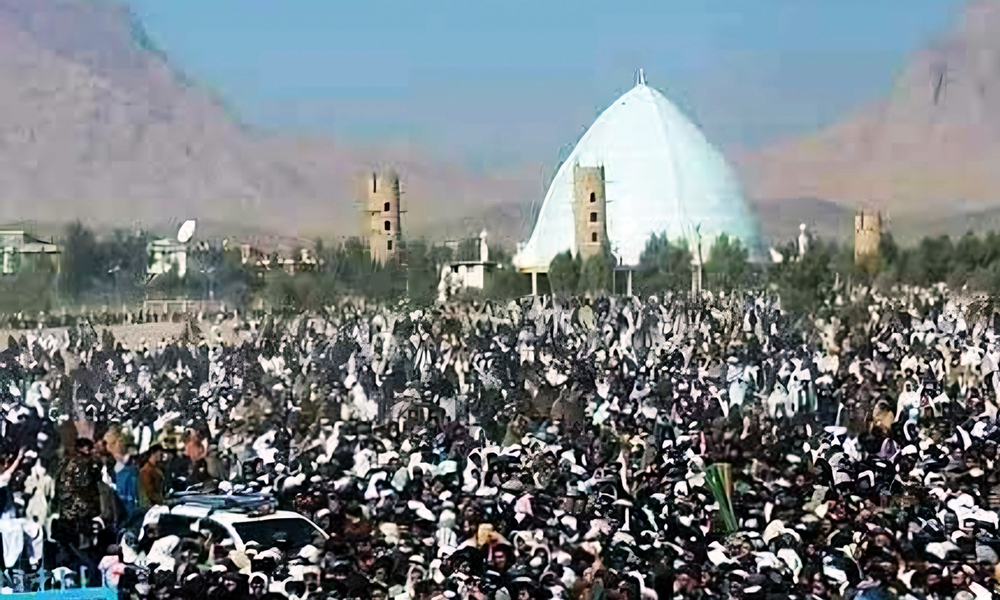
Zabihullah Mujahid, the spokesperson for the Islamic Emirate, announced on Sunday that the Eid al-Fitr prayer was held at the Eidgah Mosque in Kandahar, where Hibatullah Akhundzada, the Supreme Leader of the IEA, led the prayers.
Thousands of people attended the event, marking a significant religious occasion.
Other IEA senior officials gathered for the Eid prayer at the ARG (Presidential Palace) in Kabul.
Mullah Abdul Ghani Baradar, the Deputy Prime Minister for Economic Affairs, took the opportunity to address the public, stating that the Islamic Emirate is ready to engage with the world based on mutual respect. He also emphasized the importance of unity and solidarity among the Afghan people.
Baradar stressed that rebuilding the country requires internal unity and that no foreign entity can achieve this task for Afghanistan. On security, he highlighted the achievements of the past three years, asserting that under their administration, Afghanistan has become fully secure.
He reaffirmed that the IEA is committed to fostering international relations through an “economy-driven policy.”
Abdul Salam Hanafi, the Deputy Prime Minister for Administrative Affairs, called on opposition groups to return to Afghanistan and participate in the country’s reconstruction.
Hanafi reiterated the IEA’s desire for economy-driven relations with all regional and global powers based on mutual respect.
Mohammad Yousuf Wafa, the Governor of Balkh, also affirmed that the current system will not be undermined. He stated, “This system was established through great sacrifices, and it is our collective duty to defend it.”
The Eid prayers and the speeches of the IEA leadership underscored a message of unity, security, and a desire for positive international engagement.
-

 Latest News5 days ago
Latest News5 days agoAfghanistan has the right to access Amu River’s water: Uzbek minister
-

 Climate Change5 days ago
Climate Change5 days agoUN and ICRC warn of serious water shortage in Afghanistan
-

 Latest News4 days ago
Latest News4 days agoAmnesty international urges Pakistan to halt Afghan deportations
-

 International Sports5 days ago
International Sports5 days agoIPL 2025: Punjab Kings secure thrilling 11-run win over Gujurat Titans
-
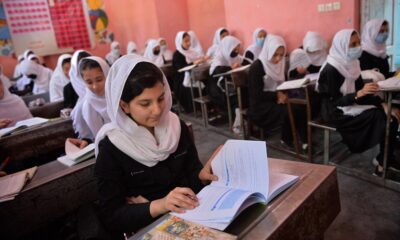
 Latest News5 days ago
Latest News5 days agoUN ‘deeply disappointed’ over ongoing ban on girls’ secondary education
-

 Latest News4 days ago
Latest News4 days agoAfghanistan-Iran-Europe railway corridor activated
-

 Business4 days ago
Business4 days agoAfghanistan ships first consignment to Europe via Khaf-Herat railway
-

 Business3 days ago
Business3 days ago36 mining contracts inked over the past year: Mines ministry

